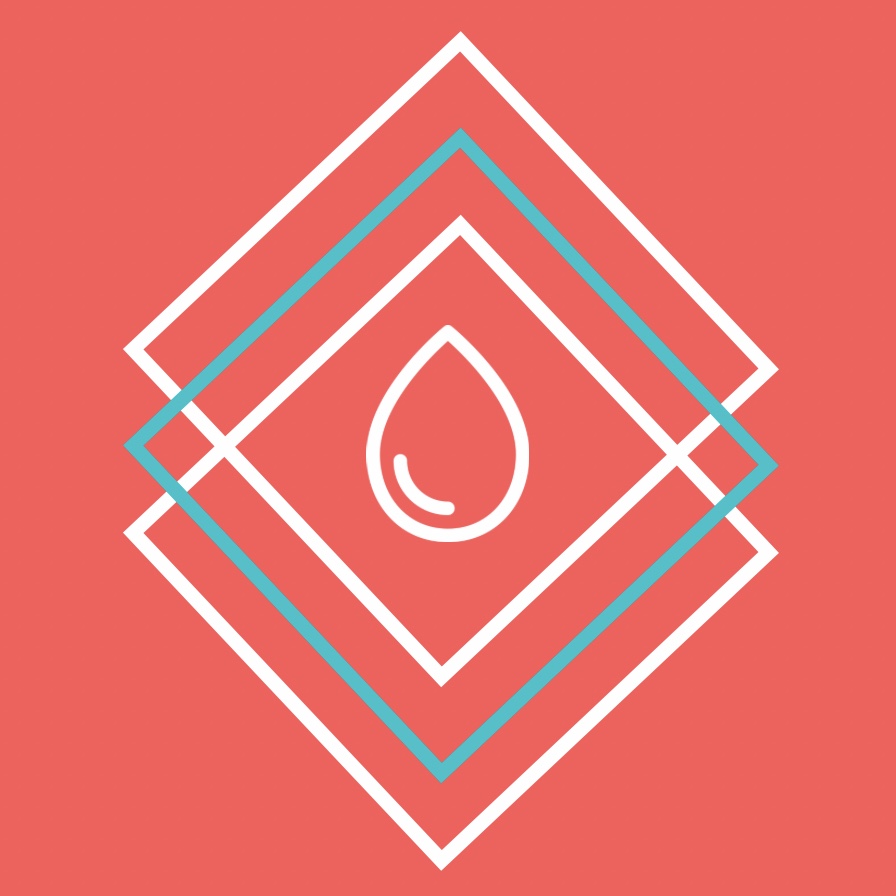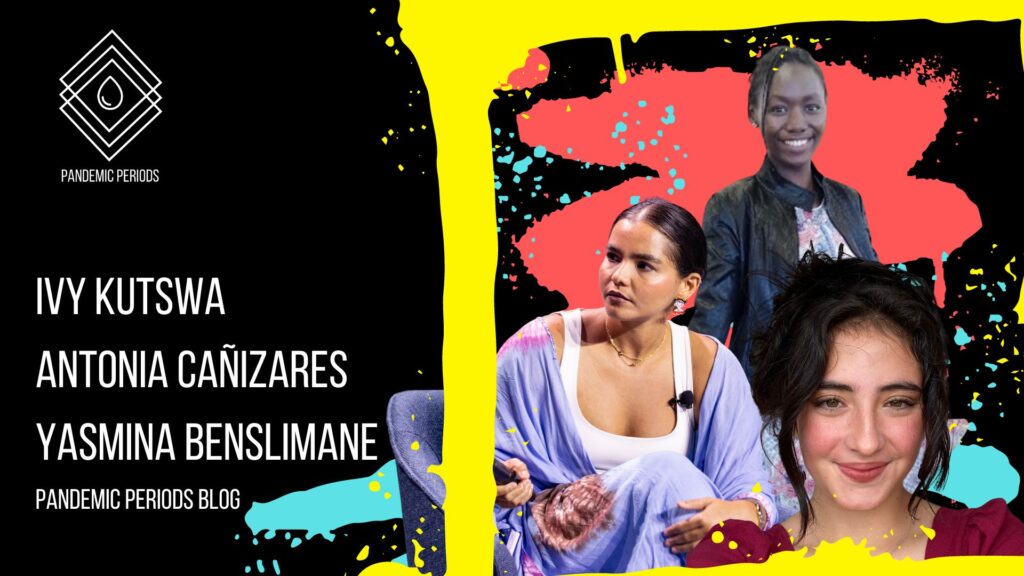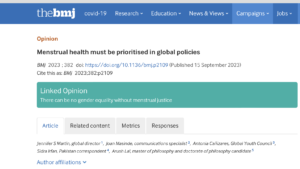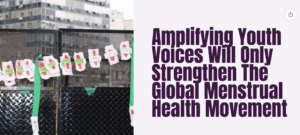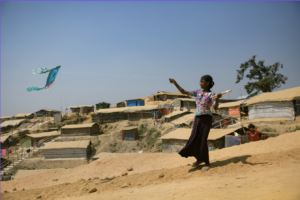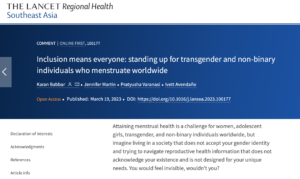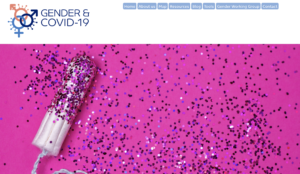In October 2023, Pandemic Periods Global Youth Counil, the Youth Coalition and Fos Feminista celebrated the Global Forum for Adolscents by convening youth menstrual health leaders from across the globe. It was not just another online meeting; it was a global get-together, filled with a shared sense of purpose; to elevate the advocacy efforts of young people.Together we embarked on a journey to redefine how society thinks and talks about periods, making big strides towards a future where menstruation is celebrated, not stigmatized.
With a bold goal in mind, the event sought to bring young voices together with experienced leaders from Mexico, Chile, Morocco, Kenya, and Haiti to share their lived experiencce and ideas about menstrual health and youth particiption. In the midst of these discussions, we were fascinated by stories from people all over the world. These stories showed the problems with menstrual hygiene myths, the urgent need to address menstrual health during disasters, how our beliefs about periods can be different because of our cultures and importantly they show that no matter where you’re from, you can be part of changing things for the better.
The discussions at the event began by questioning the usual words we use—like “menstrual hygiene.” While it might sound okay and acceptable at first, it actually portrays periods as a problem in need of cleaning up. The essence of this event was to find more empowering words and language that make periods something to be proud of, rather than something to be ashamed of.
Then, the talks turned to something serious. During emergencies, like earthquakes or big political changes, period products are often forgotten and their distribution is usually overlooked. Yasmina Benslimane from Morocco mentioned her work post-earthquake in her home country after it was struck by this disaster in September. This event also served as a reminder to everyone that periods don’t stop for a crisis. It stressed the importance of making sure that there are enough pads, tampons and other period products available for people who need them during such emergencies. Yasmina also mentioned the situation in Palestine and Afghanistan among others by saying:
“We cannot advocate for menstrual care without taking into consideration all different intersections, risks, cycles of violence perpetuated against women and girls and all people who menstruate.”
So, when such crisis happens, it is important to remember to have plenty of pads and tampons ready for those who need them. It is about being prepared to help out when people are going through tough times.
We also talked about the myths that people believe about periods. These aren’t just silly stories; they’re ideas that can make life harder for people who have periods. During the event it was emphasized that we shouldn’t just ignore these myths. Instead, we need to understand why people believe them and then show them the real facts.
Everyone, from Latin America to Africa, shared their stories, showing that this event was about more than just talking—it was about doing. And big groups like Fòs Feminista and the Generation Equality Forum were part of it, too. They’re all about making sure everyone, no matter their gender, can have a healthy period. During the discussions we learnt how important young people are in making changes and breaking old rules about periods. Groups like the Global Youth Council and Fos Feminista showed us how they’re leading the way to make the conversations about periods more fair and inclusive.
It was cool to see how young people are passionate about changing the way we think and leading the way. They’re not sitting back and waiting; they’re out there making noise and using social media to get the word out about period health. In today’s interconnected world, with technology, we can easily reach out and connect with others making it easier to amplify our voices and make a difference. The Crimson Revolution really proved how powerful digital tools can be in creating positive change. By using platforms like social media and the internet, we are able to share our message with people all around the world, no matter where they are. It is amazing how technology helps us break down barriers, reach and motivate so many people who are ready to make a difference. The event showed us that using digital advocacy can make big changes in society.
With inspiring talks from speakers like Antonia Cañizares and Maite Pozo along with engaging panel discussions, the event offered valuable insights about menstrual advocacy that really got everyone thinking. Each speaker shared their perspectives which sparked conversations that really meant something to us all. The fireside chat reminded us that we all have a part to play in supporting menstrual health rights as well as breaking down barriers. These discussions left a lasting impact, reminding me of the importance of working together to make a difference.
As the event wrapped up, we all felt a strong urge to take action.We discussed important topics that needed further work, like making sure teenagers have good menstrual health. Being inspired by what I learnt, I promised to help improve adolescent menstrual health in my community and everywhere else. It is by working together and staying committed that we’ll make a real difference.
It was clear that this was just the start. It was an invitation to keep the conversation alive and take it out into the world. From leaders in Ecuador to activists in Morocco, the voices of the Crimson Revolution are calling out for everyone to join in.
So what’s next? It’s up to all of us. Check out the rest of the Pandemic Periods website, follow the work of our Global Youth Council, join the conversation with hashtags on social media and let’s keep talking about periods.
Because when it comes to menstrual health, every voice matters.
For further insights and updates, follow Pandemic Periods, Fos Feminista and the Generation Equality Forum on social media. Together, let us create a future where menstrual health is a universal right, and every voice matters.
